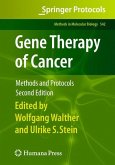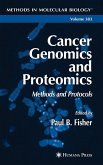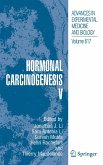Since the discovery of the molecular structure of genes and the unveiling of the molecular basis of numerous human diseases, scientists have been fas- nated with the possibility of treating certain diseases by transducing foreign DNA into the affected cells. Initially, it was proposed that the foreign DNA could either replace defective nonfunctional genes, or code for therapeutic proteins. This concept has evolved into the rapidly growing field of gene therapy. Even though surgery, radiotherapy, and chemotherapy are widely ava- able and routinely used for cancer treatment, these therapies fail to cure approximately 50 percent of cancer patients. Therefore, since it is a disease characterized by aberrant gene expression, cancer has been a target of gene therapy research since the inception of this treatment modality. Numerous cancer gene therapy strategies are currently being investigated, including gene replacement therapy, the regulation of gene expression to modulate immu- logical responses to tumors, the direct killing of tumor cells, and direct int- ference with tumor growth. In this context, gene transfer systems, tumor-specific expression vectors, and novel therapeutic genes have been extensively st- ied. All these strategies aim for the selective destruction of human malignant disease while circumventing the destruction of nonmalignant cells and tissues thereby minimizing toxicity to the patient.
Hinweis: Dieser Artikel kann nur an eine deutsche Lieferadresse ausgeliefert werden.
Hinweis: Dieser Artikel kann nur an eine deutsche Lieferadresse ausgeliefert werden.
"A wide variety of methods used to deliver genes to tumors are discussed, as are the type of genes used. This includes tumor vaccination, suicide genes, antisense genes, ribozymes, etc. The unique aspect of this book is the translational approach of explaining laboratory techniques as well as the application to patients. . .This book is well written and a translational resource for those interested in the rapidly advancing and novel field of gene therapy for malignancies."-Doody's Health Science Book Review Journal








